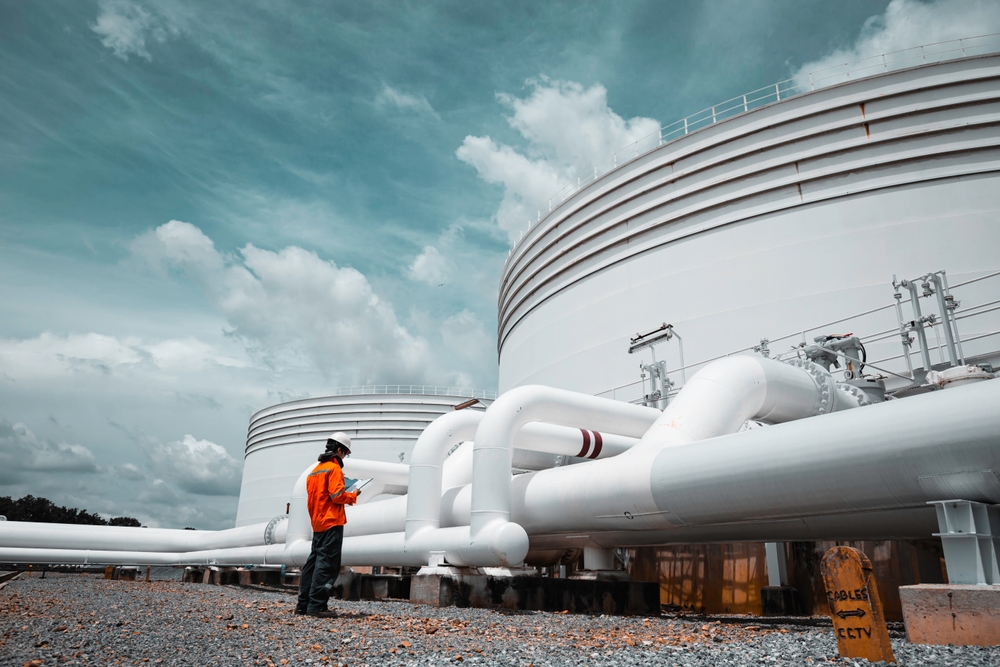
.jpg)
This course addresses the operations and administration in charge of oil and gas terminals at the sea, that is, taking into consideration factors like how cargo movement is done, security measures in place, environmental laws, and coordination of logistics. The audience will acquire useful practice in improving effectiveness of terminal operations, risk assumptions, and adhering to required standards in safe and effective management of marine terminals.
| City | Start Date | End Date | Fees | Register | Enquire | Download |
|---|---|---|---|---|---|---|
| Amman | 07-07-2025 | 11-07-2025 | 3950 $ | Register | Enquire | |
| Barcelona | 14-07-2025 | 18-07-2025 | 6200 $ | Register | Enquire | |
| Casablanca | 21-07-2025 | 25-07-2025 | 4950 $ | Register | Enquire | |
| Dubai | 28-07-2025 | 01-08-2025 | 4300 $ | Register | Enquire | |
| Rome | 04-08-2025 | 08-08-2025 | 6200 $ | Register | Enquire | |
| Madrid | 11-08-2025 | 15-08-2025 | 6200 $ | Register | Enquire | |
| Casablanca | 18-08-2025 | 22-08-2025 | 4950 $ | Register | Enquire | |
| Sharm El Sheikh | 01-09-2025 | 05-09-2025 | 3950 $ | Register | Enquire | |
| London | 08-09-2025 | 12-09-2025 | 6200 $ | Register | Enquire | |
| Amsterdam | 15-09-2025 | 19-09-2025 | 6200 $ | Register | Enquire | |
| Madrid | 22-09-2025 | 26-09-2025 | 6200 $ | Register | Enquire | |
| Kuala Lumpur | 29-09-2025 | 03-10-2025 | 4950 $ | Register | Enquire | |
| Madrid | 06-10-2025 | 10-10-2025 | 6200 $ | Register | Enquire | |
| Cape Town | 13-10-2025 | 17-10-2025 | 5600 $ | Register | Enquire | |
| London | 20-10-2025 | 24-10-2025 | 6200 $ | Register | Enquire | |
| Dubai | 27-10-2025 | 31-10-2025 | 4300 $ | Register | Enquire | |
| Cairo | 03-11-2025 | 07-11-2025 | 3950 $ | Register | Enquire | |
| Madrid | 10-11-2025 | 14-11-2025 | 6200 $ | Register | Enquire | |
| Casablanca | 17-11-2025 | 21-11-2025 | 4950 $ | Register | Enquire | |
| Cape Town | 01-12-2025 | 05-12-2025 | 5600 $ | Register | Enquire | |
| Amman | 08-12-2025 | 12-12-2025 | 3950 $ | Register | Enquire | |
| London | 15-12-2025 | 19-12-2025 | 6200 $ | Register | Enquire | |
| Amsterdam | 22-12-2025 | 26-12-2025 | 6200 $ | Register | Enquire | |
| Sharm El Sheikh | 29-12-2025 | 02-01-2026 | 3950 $ | Register | Enquire |
Upon completion of this marine oil and gas terminal operations management course, participants, particularly from organizations managing marine terminals, will gain essential skills, knowledge, and tools to address various technical and safety challenges in terminal operations. These challenges include cargo transfer, custody transfer control, emergency management, and vessel berthing, all in accordance with international standards.
The course is designed to comprehensively equip participants in managing complex oil and gas facilities and operations while providing a systematic foundation in oil and gas management.
After finishing this marine oil and gas terminal operations management course, learners will be able to:
Unit 1: Cargo Properties
Unit 2: Storage and Transfer
Unit 3: Harbour and Vessels
Unit 4: Safety and Risk
Unit 5: Terminal Management

.jpg)

.jpg)
.jpg)














